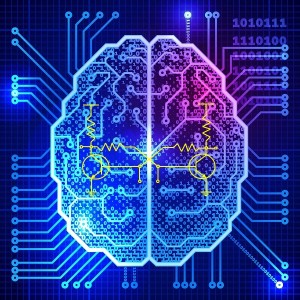Title: Facing the Intelligence Explosion eBook
Publisher: Machine Intelligence Research Institute, 2013
While some balk at the idea of machines ever exhibiting human-like intelligence, Luke Muehlhauser (2013) provides compelling arguments that the singularity, or the pivot point in which machines match human intelligence, will be very short-lived, and machines will quickly evolve super-intelligence in god-like proportions. Quoting:
How could an AI surpass human abilities? Let us count the ways . . .
- Speed. Our axons carry signals at seventy-five meters per second or slower. A machine can pass signals along about four million times more quickly.
- Serial depth. The human brain can’t rapidly perform any computation that requires more than one hundred sequential steps; thus, it relies on massively parallel computation.2 More is possible when both parallel and deep serial computations can be performed.
- Computational resources. The brain’s size and neuron count are constrained by skull size, metabolism, and other factors. AIs could be built on the scale of buildings or cities or larger. When we can make circuits no smaller, we can just add more of them.
- Rationality. As we explored earlier, human brains do nothing like optimal belief formation or goal achievement. Machines can be built from the ground up using (computable approximations of) optimal Bayesian decision networks, and indeed this is already a leading paradigm in artificial agent design.
- Introspective access/editability. We humans have almost no introspective access to our cognitive algorithms, and cannot easily edit and improve them. Machines can already do this (see eurisko and metaheuristics). A limited hack like the method of loci greatly improves human memory; machines can do this kind of thing in spades.
And this is only a partial list.









